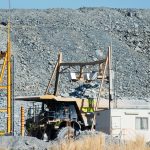Oil and gas resources
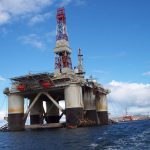
Oil and gas have been found on Cambodian territory but no commercial extraction has begun. When extraction may begin is uncertain while oil prices are at comparatively low levels. All the petroleum products for local demand are imported, chiefly from Vietnam, Singapore and Thailand. Consumption ...
Iron and steel
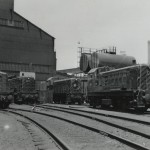
Although Cambodia is believed to have iron ore resources and a number of exploration licenses have been granted, no significant finds have been reported. There is no commercial mining of iron ore in the country. While ambitious plans for mining and steel plants have been ...
Communal land

Though there are multiple forms of communal property, the rights associated with indigenous communal property are subject to significant legal and socio-economic issues. Indigenous communities are culturally very different from the rest of Cambodia, and the law provides them with the opportunity to obtain collective ...
Energy for transport

In Cambodia, petroleum is traditionally the main source of energy for transportation. The petroleum fuels used for transportation include gasoline, diesel, heavy fuel and fuel oil. ...
Population and censuses
table { width: 100%; } table td { vertical-align: middle; } Cambodians gathering along the Chaktomuk riverside in Phnom Penh to watch boat racing during the Water Festival. Photo by Patrik M. Loeff, taken on 24 November 2007. Licensed under CC BY-NC-ND 2.0.PopulationProvisional results from ...
State private land
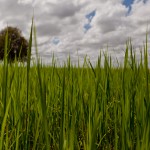
All land that is not state public property or is not privately owned is de facto state private land. State private land may be sold, exchanged, leased, granted as concessions, or otherwise alienated. ...
Community fisheries
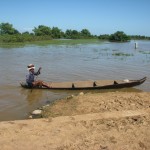
Community fishery refuges, Battambang, Cambodia. Photo by Alan Brooks/WorldFish, taken on 2 November 2011. Licensed under CC BY-NC-ND 2.0.Fishing practices in Cambodia are classified into three broad categories: small-scale or family fishing, medium-scale and large-scale or commercial fishing.In 2001, aware of the need to safeguard ...
Ministry of Education, Youth and Sports
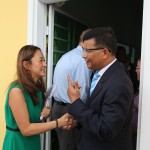
H.E. Hang Chuon Naron and Julie Chung in the inauguration of the Rice Academy, Cambodia. Photo by U.S Embassy Phnom Penh, take on 17 September 2014. Licensed under CC BY-NC-ND 2.0In 1996, the Ministry of Education, Youth and Sport (MoEYS) was established.29 Its organization and functioning ...
Economy and commerce
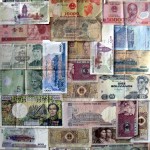
Counting money. Photo by Aaron Gilson, taken on 5 April 2013. Licensed under CC BY-NC-ND 2.0.Cambodia re-opened for international trade in the 1980s, opened up to foreign investment in 1994, joined ASEAN in 1999, and became a member of the WTO in 2004. Its bilateral ...
SDG 17 Partnerships for the goals
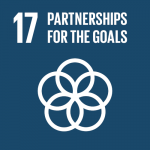
SDG 17 – “Strengthen the means of implementation and revitalize the global partnership for sustainable development” – is about bringing governments, civil society, the private sector and other actors together to help achieve the 2030 Agenda. There are 19 global targets and 25 indicators. The targets ...
Education and training
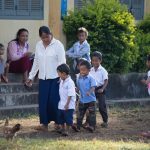
Chi Phat primary school, Koh Kong Province. Photo by ODC team, taken on 28 November 2017. Licensed under CC BY-SA 4.0.Access to free, good quality education in Cambodia is a right set out in the country’s Constitution: Article 65: “The State shall protect and promote citizens’ ...
Animals

Cambodian animals are state property under Article 48 of the Forestry Law of 2002. This places the Forestry Administration (FA) in charge of research programs and conservation duties. The FA carries this out through its Department of Wildlife and Biodiversity. Conservation programs in the field ...
Environment and natural resources
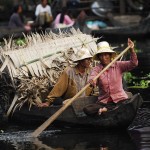
Around three quarters of Cambodia’s population depend on agriculture, forest products and fisheries for their livelihoods, so the management of the environment and natural resources is of great importance. Deforestation has occurred on a large scale. Cambodia lost six percent of its remaining primary forest ...
National government
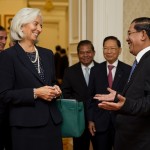
Cambodia is a constitutional monarchy. According to the 1993 Constitution, although he is the head of state, the king has very limited powers compared to the prime minister, the head of the government. Unlike the 1947 Constitution, power does not come from the king but ...
Extractive industries policy and administration
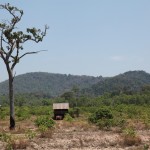
Cambodia’s extractive industries have traditionally operated on a small scale, mostly mining construction materials, gold or gemstones. While commercial production of minerals or oil has yet to begin on a large scale – these products made up just 0.1% of the country’s exports in 2016243 – ...
SDG 2 Zero hunger
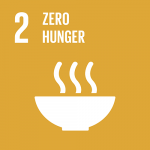
Sustainable Development Goal 2 (SDG 2) seeks to “end hunger, achieve food security and improved nutrition and promote sustainable agriculture”, ensuring universal access to safe, nutritious and sufficient food for everyone at all times. Likewise, it provides a much more comprehensive approach to the issue ...
Concessions
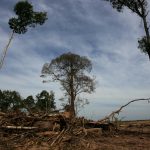
A land concession is a grant of rights over an area of land for a specific purpose. In Cambodia land concessions can be granted for various purposes, including agribusiness, redistribution of land to the landless and land-poor, infrastructure development, mining and fishing. They have been ...
Health care policy and administration
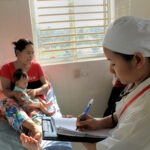
A quality and effective healthcare system that provides equal access to services is critical to ensure the well-being of any population. Both developed and developing countries strive to bring improvements to their healthcare systems. Cambodia, in particular, has undergone significant transformations in terms of healthcare ...
Water resources
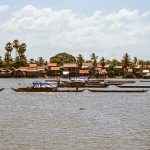
Geographically, Cambodia is rich in rivers and water bodies. These water resources play an important role in economic and social development, particularly in agriculture, industry, environmental protection and tourism sectors. ...


